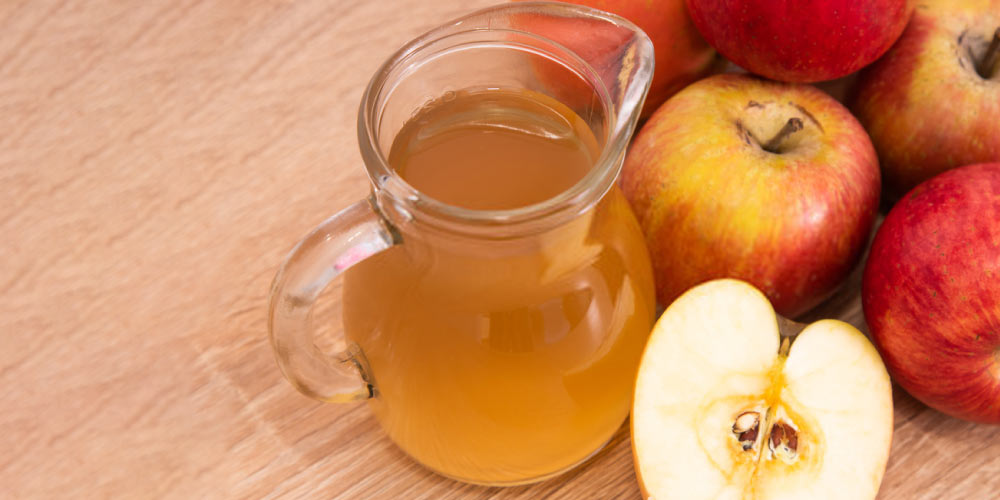
Hiatal hernia is the most common type of diaphragmatic hernia. The hernia occurs when a part of the stomach pushes through the hiatus (part of the digestive system that connects stomach to the esophagus).
With the right lifestyle changes and simple home remedies, hiatal hernia can be curbed. Some of them are discussed below.
Table of Contents
1. Self-massage
A simple self-massage can help get relief from the symptoms of hiatal hernia. This works on the uppermost portion of the abdominal cavity. This not only helps to reduce the discomfort and symptoms of hernia but also strengthens the abdominal muscles.
You can self massage the herniated area twice daily. To properly massage the hernia, follow the below-mentioned instructions-
- Start by relaxing and lying on your back.
- Try to find your rib cage with your fingers just below the breast bones.
- Slowly apply pressure in the downward direction towards the belly button.
- Massage the area for at least 5 minutes.
2. Try the Warm Water Fix
Just after waking up in the morning, while you are still in bed, drink a glass of lukewarm or room temperature water. This helps to relax the abdominal muscles and the diaphragm, therefore, bringing down the hernia from opening in the diaphragm.
After drinking a glass of warm water, try the following exercises-
- Rise quickly up and down on your toes and heels a couple of times. This helps to pull the weight of the water down.
- Raise your arms up and take a few short quick breaths with your mouth open for 15 seconds. This exercise helps to tighten the diaphragm back up and close the hole.
Also Read: Difference between Hiatal Hernia and GERD
3. Use Apple Cider Vinegar

Known for its acidic nature, ironically it produces an alkaline effect in the body. The anti inflammatory properties of apple cider vinegar treats the symptoms of hiatal hernia including inflammation in the stomach, heartburn and acidity.
In a glass of warm water, add a few drops of raw apple cider vinegar. Drink this everyday just before meals.
4. Take Cinnamon
One of the major components of cinnamon, Cinnamaldehyde, helps to alleviate the symptoms of gastric inflammation. Therefore, it can also help get relief from acid reflux which is a common problem associated with a hiatal hernia.
You can take a half teaspoon of cinnamon powder in a glass of warm water. Drink this mixture twice a day to get the best results.
5. Yoga for Hiatal Hernia
Yoga is the safest method to close an opening caused by a hiatal hernia. However, not all poses should be practiced or else it can make the condition worse.
The poses that strengthen the diaphragm and the stomach muscles should be practiced while yoga postures that put extra pressure on the abdomen such as Cobra, Bow, and Bridge pose should be avoided.
6. Drink Chamomile Tea

Apart from getting relief from symptoms of hiatal hernia, chamomile tea can cure different types of gastrointestinal problems. This helps to manage acidity which is one of the most common symptoms of hiatal hernia. Chamomile tea is rich in anti-inflammatory properties.
Drinking chamomile tea can effectively lower gastric acidity as well as inhibit secondary hyperacidity.
In a cup of water, add a teaspoon of chamomile tea and boil it for 5 minutes. Strain the mixture and drink the tea.
7. Drink Slippery Elm Tea
Slippery Elm tea is rich in gastroprotective effects. Hence, this reduces stomach acidity and helps to get relief from heartburn. This has a soothing, anti-inflammatory effect on the body.
Mix two teaspoons of slippery elm powder in a glass of hot water and drink it to get soothe out symptoms such as acid reflux or heartburn.
8. Change Your Daily Diet
As the hiatal hernia occurs in the abdomen, the main problem it causes is related to digestive problems. Thus, it becomes necessary for a patient with hiatal hernia to keep a close eye on their diet.
There is a particular set of food that should be eaten as well as avoided.
Food to eat by people suffering from hiatal hernias
For a person with hiatal hernias, non-acidic food that contains dietary fiber is quite beneficial. Some of the foods that are safe to eat are-
- Green vegetables
- Beans and peas
- Lean protein such as fish and chicken
- Non-citrus fruits and juices
- Nuts and seeds
- Artichoke and asparagus
- Cardamom
- Coriander
- De-caffeinated drinks such as ginger, dandelion and green teas
- Healthy fats such as coconut, avocado, and olive oil
- Broth
- Fermented foods that are rich in probiotics
Food to avoid during Hiatal Hernia
Patients of hiatal hernia should avoid acidic, rich, oil and preservative-rich food. This will help to reduce heartburn, gas, indigestion, bloating or reflux.
- Fatty foods
- Caffeinated drinks
- Fried/oily food
- Cocoa and chocolate
- Alcohol
- Tomato sauces
- Candies
- Soft drinks and carbonated beverages
- Sweetened juice or tea
- High-fat dairy products
- Food with high salt content
- Cereals and bread
- Fast food
- Garlic, shallots, onions, leeks, and chives
9. De-stress
Chronic stress is a major factor why people develop hiatal hernias. When stress occurs too often or stays too long in the body, these changes can cause a malfunction in the body and lead to displacement such as a hernia.
Meditate or pray a few minutes on a daily basis to ease out the anxiety. Laugh your heart or dance to your favorite music to increase the production of endorphin which decreases stress levels.
10. Stay Hydrated Throughout the Day
It is important for hiatal hernia patients to maintain optimal hydration throughout the day. Drinking water outside the meal times makes sure that the digestive juices are not diluted nor digestion is inhibited. A basic guideline to keep in mind is avoiding drinking an hour before and after meals.
Read more: How to cure an inguinal hernia without surgery?
Pristyn Care Recommends
Women who have had multiple pregnancies or people who are obese or overweight are more likely to develop a hiatal hernia. Also, people who consume a lot of fatty foods have higher chances of suffering from a hernia.
The natural remedies can only help in easing out the discomfort associated with hernia. Also, these remedies cannot be tried on infants who have developed a hernia.
Curing a hernia with the natural method may not always prove to be fruitful. Meanwhile, delaying the right treatment option can complicate the condition and even lead to strangulation.
Strangulation can turn out to be fatal for people suffering from hiatal hernia. Pristyn Care recommends patients to consult with a doctor as soon as they experience symptoms of a hiatal hernia.
The most effective treatment option for curing a hiatal hernia is laparoscopic hernia repair. In this procedure, the doctor uses a special instrument- a laparoscope- to navigate inside the abdomen and strengthens the weakened area with a surgical mesh. Furthermore, the success rate of this procedure is also very high.
Also Read:
- Things To Do and Avoid During Hernia
- 15 Life Saving Facts About Inguinal Hernia
- Difference Between Direct And Indirect Hernia
- Why I am not getting pregnant- Common Factors
- Cure Piles in 3 Days
- 4 Methods for Kidney Stone Removal
- Laser Circumcision – Benefits & Recovery
FAQ’s
Q. Can you reverse a hiatal hernia?
A. All hernias are irreversible in nature. The reason being that there is an opening in the abdomen, through which the part of tissue slides. To cure a hernia, the opening needs to be closed.
Q. Can you eat eggs with hiatal hernia?
A. Protein-rich foods such as eggs, legumes, etc. are recommended to people suffering from hiatal hernia. Also, eat lean meats and fish, fiber-rich diet along with lots of water.
Q. Is it possible to fix a hiatal hernia without surgery?
A. Any type of hernias cannot be treated without surgery. In initial stages, the doctor can recommend watchful waiting. However, it can become serious and be life-threatening.







